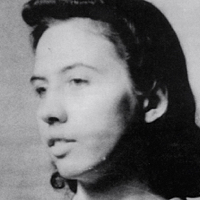Rascals case in brief
In the beginning, in 1989, more than 90 children at the Little Rascals Day Care Center in Edenton, North Carolina, accused a total of 20 adults with 429 instances of sexual abuse over a three-year period. It may have all begun with one parent’s complaint about punishment given her child.
Among the alleged perpetrators: the sheriff and mayor. But prosecutors would charge only Robin Byrum, Darlene Harris, Elizabeth “Betsy” Kelly, Robert “Bob” Kelly, Willard Scott Privott, Shelley Stone and Dawn Wilson – the Edenton 7.
Along with sodomy and beatings, allegations included a baby killed with a handgun, a child being hung upside down from a tree and being set on fire and countless other fantastic incidents involving spaceships, hot air balloons, pirate ships and trained sharks.
By the time prosecutors dropped the last charges in 1997, Little Rascals had become North Carolina’s longest and most costly criminal trial. Prosecutors kept defendants jailed in hopes at least one would turn against their supposed co-conspirators. Remarkably, none did. Another shameful record: Five defendants had to wait longer to face their accusers in court than anyone else in North Carolina history.
Between 1991 and 1997, Ofra Bikel produced three extraordinary episodes on the Little Rascals case for the PBS series “Frontline.” Although “Innocence Lost” did not deter prosecutors, it exposed their tactics and fostered nationwide skepticism and dismay.
With each passing year, the absurdity of the Little Rascals charges has become more obvious. But no admission of error has ever come from prosecutors, police, interviewers or parents. This site is devoted to the issues raised by this case.
On Facebook
Click for earlier Facebook posts archived on this site
Click to go to
Today’s random selection from the Little Rascals Day Care archives….
Click for earlier Facebook posts archived on this site
Click to go to
Today’s random selection from the Little Rascals Day Care archives….
Oh, for the ability to recognize something ‘odd’
 June 25, 2012
June 25, 2012
“I saw this woman in her 20s … accused of something like 2,800 charges of child sex abuse. Oh, I thought, well, that’s very odd….
“I thought, How can (Kelly Michaels) one woman, one young, lone woman in an absolutely open place like the child care center of the church in New Jersey that she worked for – how could she have committed these enormous crimes against 20 children, dressed and undressed them and sent – you know what it is to dress and undress even one child every day without getting their socks lost? – 20 children in a perfectly public place, torture them for two years, frighten and terrorize them, and they never went home and told their parents anything?… This did seem strange.”
– Dorothy Rabinowitz, recalling on C-SPAN the 1985 case that led to her Pulitzer-winning coverage of the ritual-abuse day-care mania
“This did seem strange.”
From the vantage of 2012, of course, such allegations seem not only “strange” but also patently incredible.
So why didn’t everybody – therapists, journalists, prosecutors, jurors – share Rabinowitz’s reasonable doubt?
How did such a grotesque misconception flourish?
Had skepticism really fallen that far out of fashion during the “Believe the Children” zeitgeist?
A funny story about the Little Rascals case (really!)
June 1, 2012
An incident recalled by a former Edenton resident:
“A friend had a son in Little Rascals but wouldn’t let him participate in the ‘hunt.’ She shielded him, as best she could, and didn’t interrogate him.
“Years later, when Bob Kelly was released, she thought it best to tell the son herself. He exploded in anger. Alarmed and filled with trepidation, she asked just what Mr. Bob had done to cause such a reaction.
“The child’s answer: Bob hadn’t let him put ketchup on his peanut butter sandwich.”
A funny thing happened on the way to publication
March 7, 2014
Second of three posts
After our lengthy email exchange I took up editor Jon Conte on his offer to consider an expanded letter challenging the Journal of Interpersonal Violence’s past support of the “satanic ritual abuse” moral panic.
This is what I submitted on Oct. 25, 2013:
To the editor:
In December 1989 the Journal of Interpersonal Violence published “Stress Responses of Children to Sexual Abuse and Ritualistic Abuse in Day Care Centers” by Susan J. Kelley. In December 1990 it published “Ritualistic Child Abuse in a Neighborhood Setting” by Barbara Snow and Teena Sorensen. Both these articles endorsed, promoted and attempted to substantiate a concept that subsequent research has proven to be a quintessential moral panic. Today no respected social scientist will argue that satanic (or sadistic) ritual abuse ever existed in the nation’s day cares.
These articles in JIV, however, were unequivocally confident that it not only existed but also was widespread. From Kelley’s synopsis: “The purpose of this study was to examine the effects of sexual abuse and ritualistic abuse of children in day care settings. The sample was composed of 134 children; 67 children who were sexually abused and ritually abused in day care centers were compared on the Child Behavior Checklist with a carefully matched group of 67 nonabused children. Findings indicated that sexually abused children had significantly more behavior problems than did the nonabused children. Sexual abuse involving ritualistic abuse was associated with increased impact as well as increased severity in the extent of the sexual, physical, and psychological abuse the children experienced.”
Snow and Sorensen criticized “attempts to discredit victims and therapists” and seemed unaware that they were exposing the corruption of those therapists’ interviewing techniques when they wrote: “Disclosures were difficult and progressed slowly. The majority of children showed little symptomology at initial referral with significant increases during the disclosure process.”
The Little Rascals and McMartin cases were but two manifestations of this moral panic of the 1980s and early 1990s. Dozens of less publicized prosecutions occurred across North America and as far away as New Zealand and Germany. The extensive literature illuminating the day care moral panic includes “Satanic Panic: The Creation of a Contemporary Legend” by Jeffrey S. Victor, “Sex Panic and the Punitive State” by Roger N. Lancaster, “Moral Panic: Changing Concepts of the Child Molester in Modern America” by Philip Jenkins, “The Satanism Scare” by David G. Bromley, Joel Best and James T. Richardson, “Moral Panics: The Social Construction of Deviance ” by Erich Goode and Nachman Ben-Yehuda, “The Day Care Ritual Abuse Moral Panic” by Mary De Young and the latest edition of “Folk Devils and Moral Panics” by Stanley Cohen – who coined the term “moral panic” in 1972.
The Wall Street Journal’s Dorothy Rabinowitz won a Pulitzer Prize for her coverage of the Wee Care Day Nursery case in 1985. Among law enforcement reports debunking ritual abuse allegations the best known is “Investigator’s Guide to Allegations of ‘Ritual’ Child Abuse” by Kenneth Lanning, the FBI agent in the Behavioral Science Unit assigned to examine these cases. Similar reports have been issued in countries such as England (“Extent and Nature of Organised and Ritual Abuse” byJ. S. La Fontaine), the Netherlands (“Report of the Ritual Abuse Workgroup”) and Australia (“Royal Commission into the New South Wales Police Service”).
Eventually the convictions of most of the day care providers in the United States were overturned. Playing a major part in alerting appellate courts to the suggestibility of child witnesses was an amicus brief filed in the Wee Care case by pioneer researchers Stephen Ceci and Maggie Bruck.
Before the fever broke, however, untold harm was done to defendants, families and child-witnesses. In the words of sociologist Mary De Young:
“Innocent people have been accused and convicted; the autobiographies of children have been usurped (and some children, now adults, have completely retracted their allegations); professional reputations have been destroyed (and some of the loudest proponents of the idea of ritual abuse have since retracted their claims); tens of millions of dollars were wasted on investigations and trials; it distracted attention, time, money and energy from ‘real’ cases of sexual abuse and from the fathers, brothers and other family members who most likely were the perpetrators; it made quality day care harder to find and drove out male providers who could have been valuable role models to children, especially boys; it eroticized abuse by focusing on rituals and masked and hooded perpetrators; it added nothing – absolutely nothing – to a clinical or scientific understanding of the traumatic effects of abuse because the trauma children experienced in these cases was iatrogenic, i.e., caused by investigators, interviewers, prosecutors and hysterical parents; it broke up families; and even dropped property values and interfered with commerce; and it introduced distrust, cynicism and incivility into our lives and into legitimate work on helping abused kids.”
The Journal of Interpersonal Violence should not allow these misguided articles from 1989 and 1990 to stand as its last word on claims of day-care ritual abuse.
Lew Powell
Charlotte, North Carolina
Alas, publication in the JIV now seems unlikely. Dr. Conte has not responded to my follow-up emails and phone messages over the past four months. Why might that be?
Next: I’ll consider some possible answers.
‘Sybil’ came clean, but psychiatrist wasn’t interested

startribune.com
Shirley Ardell Mason
“[Shirley Ardell] Mason was the real person behind the 1970s best seller ‘Sybil,’ which sold 6 million copies with its riveting account of an abused woman inhabited by 16 different personalities. Sally Field won an Emmy for her 1976 portrayal seen by 20 percent of the nation.
“In the process, Mason popularized the condition known as multiple personality disorder – a trendy 1970s diagnosis. The number of cases mushroomed from about 75 to 40,000 after ‘Sybil’ was published….
“In the trove of records kept on her case, Mason actually admitted making up the many personalities.
“ ‘I do not really have any multiple personalities,’ she wrote in a letter to her psychiatrist. ‘I do not even have a “double.” … I am all of them. I have been lying in my pretense of them.’
“Her doctor chalked it up to a defensive ploy to avoid deeper therapy….”
– From “The Minnesotan behind Sybil, one of America’s most famous psychiatric patients”
by Curt Brown in the Minneapolis Star Tribune (Feb. 25)
![]()











0 CommentsComment on Facebook